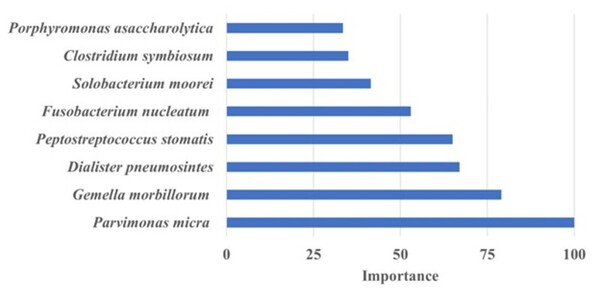The correlation between bacteria and colorectal cancer
(1) Adlai E. Stevenson High School
https://doi.org/10.59720/24-084
Colorectal cancer (CRC) is the third most commonly diagnosed cancer with a high mortality rate worldwide. The global burden of CRC imposes the need to understand the mechanism of CRC progression. Accumulating evidence reveals gut bacteria may contribute to the risk of CRC. The purpose of this project was to determine whether the bacterial composition is altered in stool samples of CRC patients. We hypothesized that patients with CRC would have a set of differentially abundant bacteria species in their stool samples compared to the control samples. Using 11 CRC datasets across 9 countries, consisting of 1395 samples from the curatedMetagenomicData database, we examined the bacterial composition and compared the prevalence and relative abundance of bacteria species across 701 CRC patients and 694 control samples. We found that CRC-associated bacteria species and their prevalence varied across different demographic regions. Combining 11 datasets, we performed differential abundance analysis to analyze the prevalence and compare the relative abundance of bacteria species between CRC samples and control samples, and we found a set of CRC-associated bacteria species that were significantly more abundant than those of control samples. Many of these species have previously been found to influence CRC development. Moreover, we identified a set of control-associated species that were important in maintaining a beneficial microbiome. This project provided insights that support further investigation into the role of CRC-associated bacteria in CRC tumorigenesis.
This article has been tagged with: